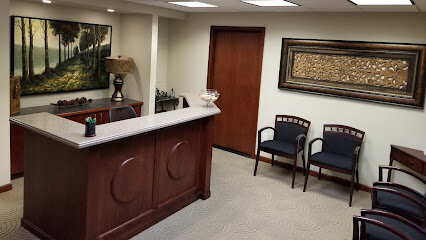Best Ethics and Professional Responsibility Lawyers in Washington
Share your needs with us, get contacted by law firms.
Free. Takes 2 min.
Or refine your search by selecting a city:
List of the best lawyers in Washington, United States
About Ethics and Professional Responsibility Law in Washington, United States
Ethics and professional responsibility law in Washington, United States, governs the conduct of lawyers, judges, and certain other licensed professionals. The primary goal is to ensure that legal professionals act with integrity, honesty, and fairness while serving their clients and the justice system. These laws and rules outline what is expected of attorneys in their professional relationships and help maintain public trust in the legal process within Washington. The Washington Rules of Professional Conduct, adopted by the Washington Supreme Court, are key documents guiding ethical behavior and setting forth disciplinary procedures for violations.
Why You May Need a Lawyer
There are various situations where you may require legal assistance related to ethics and professional responsibility in Washington. These situations can include:
- Facing a complaint or disciplinary action from a client or the Washington State Bar Association
- Receiving a grievance alleging ethical violations, such as conflicts of interest, mishandling funds, or breach of confidentiality
- Needing guidance on complying with the Washington Rules of Professional Conduct in your legal practice
- Reporting unethical behavior by another attorney or legal professional
- Consulting on matters of client consent, disclosure, or attorney-client privilege
- Licensing or admission issues, including questions about character and fitness
- Inquiries into whether certain conduct is permitted under ethical rules
Local Laws Overview
In Washington, the main source of law on legal ethics and professional responsibility is the Washington Rules of Professional Conduct (RPC). These rules apply to all attorneys licensed in the state and cover topics such as:
- Confidentiality of client information
- Conflict of interest management
- Fees, billing practices, and safekeeping of client funds
- Professional integrity and candor toward tribunals
- Communication with represented and unrepresented parties
- Advertising and solicitation of clients
- Requirements for reporting the professional misconduct of other lawyers
- Obligations regarding competence and diligence
Frequently Asked Questions
What is the purpose of legal ethics rules in Washington?
The purpose is to set standards that protect the public, preserve client trust, and reinforce the integrity of the legal profession.
What governing body handles complaints against lawyers in Washington?
The Washington State Bar Association handles complaints through its Office of Disciplinary Counsel.
What happens if a lawyer violates the Rules of Professional Conduct?
Depending on the severity, the lawyer could face private admonition, public reprimand, suspension of their license, or disbarment.
Can I file a complaint about my lawyer’s behavior?
Yes. Anyone can file a grievance with the Washington State Bar Association if they believe an attorney has acted unethically.
What rights do lawyers have during a disciplinary investigation?
Lawyers have rights such as notice of the complaint, the ability to respond, a fair hearing, and the right to appeal findings.
What is attorney-client privilege in Washington?
Attorney-client privilege protects communications between a lawyer and their client from being disclosed without the client’s consent, with certain exceptions provided by law.
Are all ethical violations intentional?
Not necessarily. Some violations may result from oversight or misunderstanding, but unintentional violations can still lead to discipline.
How can lawyers prevent ethical problems?
Lawyers should regularly review the Washington Rules of Professional Conduct, seek advice when faced with ethical dilemmas, and attend continuing legal education sessions on ethics.
Can non-lawyers be held to ethics rules about legal practice?
While non-lawyers do not fall under the attorney rules, engaging in unauthorized practice of law is prohibited and can also lead to legal action.
If I disagree with the outcome of a disciplinary case, what can I do?
Lawyers and complainants may seek review of the decision through the Washington Supreme Court, following established procedures.
Additional Resources
If you need more information or support regarding ethics and professional responsibility in Washington, the following can be helpful:
- Washington State Bar Association (WSBA) - Ethics Line, advisory opinions, and disciplinary resources
- The Office of Disciplinary Counsel (WSBA) - Handles complaints, investigations, and enforcement
- Washington Supreme Court - Decisions on attorney discipline and rulemaking authority
- Local law libraries - Access to rules, ethics opinions, and research materials
- Continuing Legal Education (CLE) providers - Ethics courses for legal professionals
Next Steps
If you believe you need legal assistance regarding ethics and professional responsibility in Washington:
- Identify your specific concerns or the nature of your issue
- Collect any relevant documents, communications, or records
- Contact the Washington State Bar Association for guidance or a referral to an ethics attorney
- If you are an attorney, consider consulting the WSBA Ethics Line or reviewing formal advisory opinions
- Arrange a consultation with an attorney who specializes in professional responsibility matters
- Follow up promptly on all requests for information or investigation notices
Lawzana helps you find the best lawyers and law firms in Washington through a curated and pre-screened list of qualified legal professionals. Our platform offers rankings and detailed profiles of attorneys and law firms, allowing you to compare based on practice areas, including Ethics and Professional Responsibility, experience, and client feedback.
Each profile includes a description of the firm's areas of practice, client reviews, team members and partners, year of establishment, spoken languages, office locations, contact information, social media presence, and any published articles or resources. Most firms on our platform speak English and are experienced in both local and international legal matters.
Get a quote from top-rated law firms in Washington, United States — quickly, securely, and without unnecessary hassle.
Disclaimer:
The information provided on this page is for general informational purposes only and does not constitute legal advice. While we strive to ensure the accuracy and relevance of the content, legal information may change over time, and interpretations of the law can vary. You should always consult with a qualified legal professional for advice specific to your situation.
We disclaim all liability for actions taken or not taken based on the content of this page. If you believe any information is incorrect or outdated, please contact us, and we will review and update it where appropriate.
Browse ethics and professional responsibility law firms by city in Washington
Refine your search by selecting a city.









